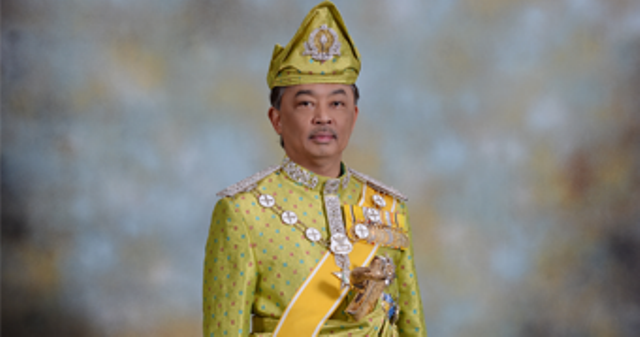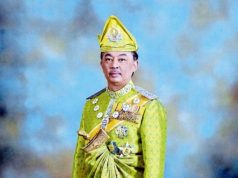PEKAN — The proclamation of Tengku Abdullah Sultan Ahmad Shah as the sixth Sultan of Pahang on Jan 15 at Istana Abu Bakar, Pekan puts him in position to become the 16th Yang di-Pertuan Agong.
The head of research of Universiti Malaysia Pahang vice-chancellor’s office, Wan Nazrul Helmy Wan Mohd Zain, who is a researcher on constitutional monarchy, said although the seniority of a ruler was decided on his date of ascendancy, it was still possible for Tengku Abdullah to be elected by the Conference of Rulers on Jan 24 at Istana Negara to become the sixth King.
Wan Nazrul Helmy told Bernama that this was based on the conventional rotation of the Malay ulers and not on the seniority of throne ascendancy in the election of the King, following the completion of the first round of rotation in 1994.
The first round of the rotation system for succession since 1957 saw the rulers from Negeri Sembilan, Selangor, Perlis, Terengganu, Kedah, Kelantan, Pahang, Johor and Perak taking turns to become the King based on the seniority of throne ascendancy.
The Conference of Rulers is said to be keen to retain the same succession plan for the second rotation system, which began with the election of Almarhum Tuanku Jaafar from Negeri Sembilan in 1994.
This was followed by Almarhum Sultan Salehuddin Abdul Aziz Shah of Selangor in 1999, Tuanku Syed Sirajuddin Putra Jamalullail of Perlis in 2001, Sultan Mizan Zainal Abidin of Terengganu in 2006, Almarhum Sultan Abdul Halim of Kedah in 2011 and Sultan Muhammad V of Kelantan from 2016.
“Based on the existing conventional rotation system, Tengku Abdullah can be considered by the Conference of Rulers to become the next Yang di-Pertuan Agong although he has just been announced to ascend the throne as the sixth Sultan of Pahang.
“This has happened before when Tuanku Syed Sirajuddin Tuanku Syed Putra Jamalullail became the 13th Yang di-Pertuan Agong on Dec 13 2001 although he only ascended the Perlis throne on April 17 2000,” he said.
Wan Nazrul Helmy said Tengku Abdullah was the most senior heir to a state throne in Malaysia as he was the Tengku Mahkota (Crown Prince) for 44 years, having been appointed in 1975 when he was just 16.
“It is this experience that has created the personality trait of Tengku Abdullah, who is seen as a credible heir to the throne. He has inherited the character of his father and is humble, caring and close to the people.
“The people of Pahang see this for themselves because whenever disaster strikes, especially floods, he will be among the first at the scene to look into their needs as well as to offer them assistance. And that has endeared him to his subjects,” he said.
Tengku Abdullah, 60, also represents the symbol of unity for the people of Pahang and this can be seen from his speeches, where he often stresses the need for racial unity among the various communities in the country.
“Under the New Malaysia environment, unity is being seen as a challenge that needs to be tackled and Tengku Abdullah, if he is installed as the Yang di-Pertuan Agong, can be an icon of goodwill in the country.
“Just like a shining pearl, I believe Tengku Abdullah can continue Sultan Ahmad Shah’s legacy as a leader who is credible and close to the people in line with the royal family’s motto that says ‘Nothing separates the King and his People’,” he said.
–BERNAMA











